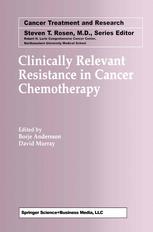

Most ebook files are in PDF format, so you can easily read them using various software such as Foxit Reader or directly on the Google Chrome browser.
Some ebook files are released by publishers in other formats such as .awz, .mobi, .epub, .fb2, etc. You may need to install specific software to read these formats on mobile/PC, such as Calibre.
Please read the tutorial at this link: https://ebookbell.com/faq
We offer FREE conversion to the popular formats you request; however, this may take some time. Therefore, right after payment, please email us, and we will try to provide the service as quickly as possible.
For some exceptional file formats or broken links (if any), please refrain from opening any disputes. Instead, email us first, and we will try to assist within a maximum of 6 hours.
EbookBell Team

5.0
90 reviewsOver the last several decades, the introduction of new chemotherapeutic drugs and drug combinations has resulted in increased long term remission rates in several important tumor types. These include childhood leukemia, adult leukemias and lymphomas, as well as testicular and trophoblastic tumors. The addition of high-dose chemotherapy with growth factor and hemopoietic stem cell support has increased clinical remission rates even further. For the majority of patients with some of the more common malignancies, however, palliation (rather than cure) is still the most realistic goal of chemotherapy for metastatic disease. The failure of chemotherapy to cure metastatic cancer is commonly referred to among clinicians as "drug resistance". This phenomenon can, however, often be viewed as the survival of malignant cells that resulted from a failure to deliver an effective drug dose to the (cellular) target because of anyone of or combination of a multitude of individual factors. Clinically, this treatment failure is often viewed as the rapid occurrence of resistance at the single cell level. However, in experimental systems, stable drug resistance is usually relatively slow to emerge.